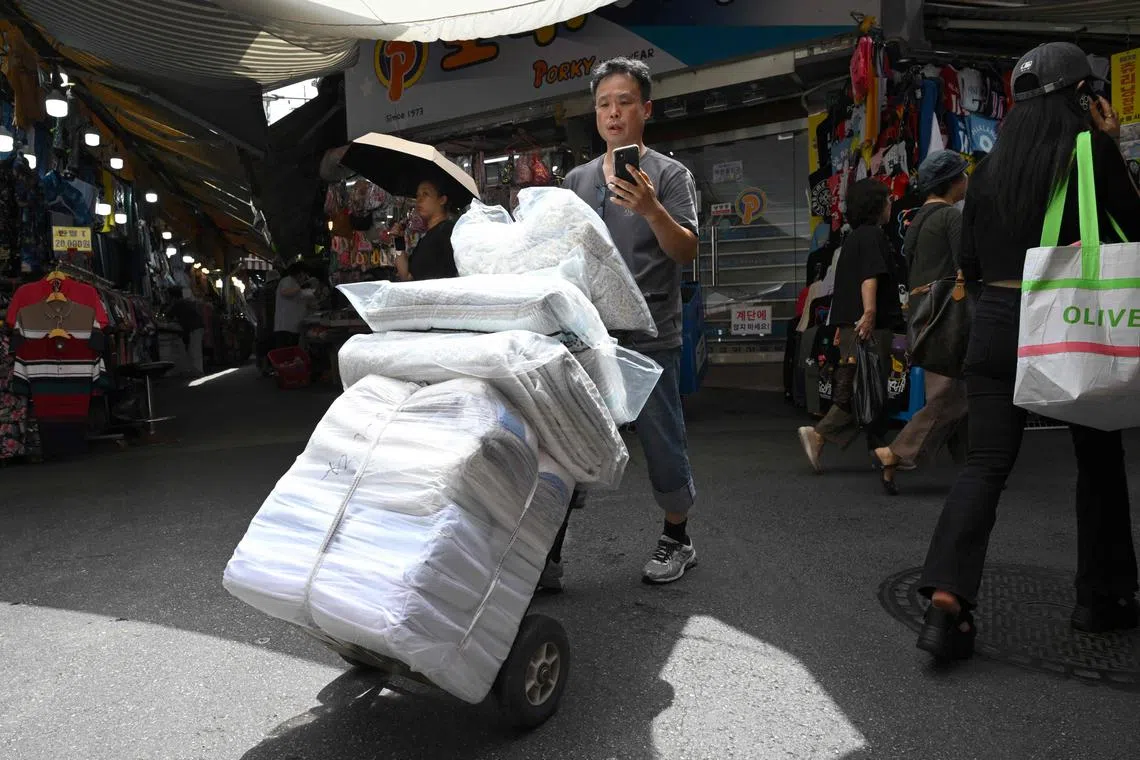South Korea expands labour protections with new union rules
Sign up now: Get insights on Asia's fast-moving developments

The amended Trade Union and Labor Relations Adjustment Act allows subcontracting firms’ labour unions to make demands of client companies directly.
PHOTO: AFP
SEOUL - South Korea’s Parliament expanded protection for sub-contracted workers on Aug 24 by passing new union rules, shrugging off concerns by businesses that they might undermine competitiveness and worsen labour relations.
Since liberal President Lee Jae Myung came to power in June, his Democratic Party, which controls Parliament, has pushed to amend the labour union law to provide more support for workers.
This reverses the stance of former president Yoon Suk Yeol’s conservative administration, which took a hard line on unions and had vetoed the Bill.
Mr Lee, who has expressed support for the Bill, is expected to sign it into law. He is travelling for summits in Japan and the US.
The amended Trade Union and Labor Relations Adjustment Act allows subcontracting firms’ labour unions to make demands of client companies directly.
It restricts the ability of employers to seek damages for strike-related disruptions and broadens the liability for executives who do not participate in collective bargaining.
Lawmakers promoting the Bill have dubbed it the “Yellow Envelope Act”, referring to envelopes supporters use to send money to union workers paying legal damages for striking.
Parliament passed it on the morning of Aug 24 after the conservative opposition delayed voting overnight, criticising it as hampering businesses in Asia’s fourth-biggest economy.
Some business groups have expressed concerns that the measure could hurt South Korea’s investment environment.
“A flexible labour environment is essential to strengthening Korea’s competitiveness as a business hub in the Asia-Pacific region,” Mr James Kim, chairman and chief executive of the American Chamber of Commerce in Korea, said in July.
“This legislation could influence future investment decisions by American companies considering Korea.”
A survey by the Korea Chamber of Commerce and Industry of about 1,200 people in August found 76 per cent thought the amendment would exacerbate contentious labour-corporate relationships. REUTERS


